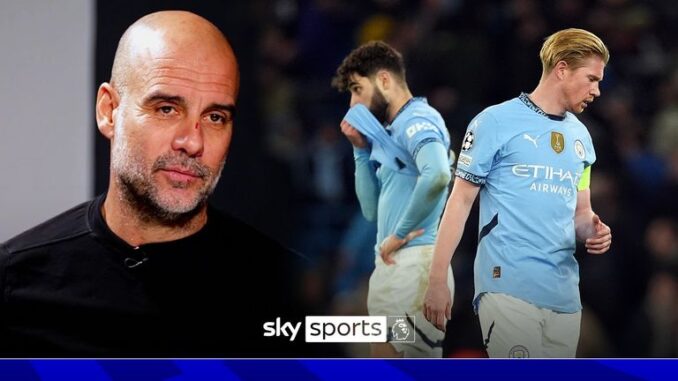
Manchester City’s Loss: A Test of Resilience and the Need for Reflection
Manchester City’s recent loss, whether in a domestic league match, a European competition, or a cup tie, represents more than just a disappointing result; it serves as a reminder of the unpredictability of football and the challenges even the most successful teams face. For a club that has dominated English football for the past decade, a loss can feel like a shock, but it is also an opportunity for introspection, growth, and learning. When a team like Manchester City, under the stewardship of Pep Guardiola, is defeated, it raises questions about tactics, mentality, and the nature of the competition.
The Nature of the Loss
Any loss by Manchester City is typically dissected from multiple angles. Under Guardiola’s leadership, the team has set standards of dominance, playing a brand of football based on possession, high pressing, and intricate passing. However, no matter how technically proficient a team is, there are always variables that can influence the outcome of a match: the form of individual players, opposition tactics, refereeing decisions, and even moments of bad luck. In City’s case, their loss could be attributed to several factors, including lapses in concentration, failure to finish chances, or perhaps being outmaneuvered tactically by the opposition.
For example, a loss to a team that plays with a deep defensive block might highlight City’s vulnerability in breaking down tight defenses, despite their superior technical abilities. Guardiola’s system demands that players constantly maintain focus and follow a clear tactical plan, but when the game doesn’t go according to plan, it exposes any slight flaws in execution. The intensity and pace of modern football also mean that a single moment of lost concentration or a small error can be punished severely.
The Tactical Response
One of the most significant aspects of a loss is the opportunity to evaluate the tactical setup. Pep Guardiola is known for his adaptability and intelligence, so when his team loses, it often sparks intense debate about his decisions. Whether it’s the choice of formation, personnel, or in-game adjustments, the loss forces a reevaluation of the strategy. Perhaps it’s a sign that the team needs to tweak their approach against certain opposition, especially when faced with high-pressing teams or sides that exploit City’s tendency to push up the pitch.
A loss might also highlight a tactical shift required to adapt to evolving challenges in the modern game. Football is increasingly dynamic, and teams are learning to counter the possession-heavy style that City has made famous. When this happens, Guardiola is typically quick to adjust, looking for new ways to gain an advantage. Whether it’s shifting to a more direct style of play, introducing new players, or emphasizing different areas of the pitch, the loss serves as a prompt for future tactical evolution.
Mental and Psychological Aspects
Another layer to consider is the mental and psychological impact of a loss, especially for a team like Manchester City that is accustomed to winning. After a period of sustained success, a defeat can be a jarring experience for both players and coaching staff. It’s easy to forget that even the most talented individuals can experience self-doubt, fatigue, or frustration when things don’t go according to plan.
A loss can challenge the resilience of the team, forcing players to reflect on their performance and come together as a collective unit. City’s leaders, such as Kevin De Bruyne, Ruben Dias, and Erling Haaland, must step up not just in terms of their on-field contributions but also in terms of their mentality. A successful team is often defined by how they respond to adversity. Manchester City, with their resources and experienced squad, have the ability to bounce back quickly, but this requires focus, commitment, and an understanding of what went wrong.
The Bigger Picture
While a loss is always a disappointment, it should not overshadow the broader accomplishments of Manchester City. The club’s trajectory under Guardiola has been extraordinary, with multiple Premier League titles, domestic cups, and a European pedigree that has steadily improved. A single defeat doesn’t define the team; it is the long-term consistency that counts.
Moreover, a loss might provide an opportunity for reflection on what can be improved. For City, this means re-examining areas like squad rotation, injury management, or even refining certain tactical nuances. Sometimes, a loss is the catalyst for further improvement and innovation. It reminds the players and coaching staff that complacency can creep in, even at the top of the game, and the pursuit of excellence must be relentless.
Conclusion
In the end, Manchester City’s loss is just one chapter in a much larger story. The beauty of football lies in its unpredictability, and even the best teams experience setbacks. What matters most is how the team responds, both in the immediate aftermath and in the long term. For Manchester City, under Pep Guardiola’s leadership, a loss is merely a temporary setback—a challenge to be overcome. With the talent and experience at their disposal, City will almost certainly bounce back stronger, using their loss as a stepping stone to further growth and success.
Leave a Reply